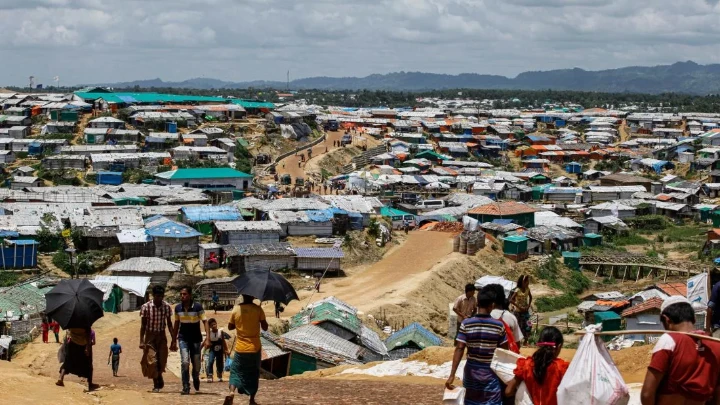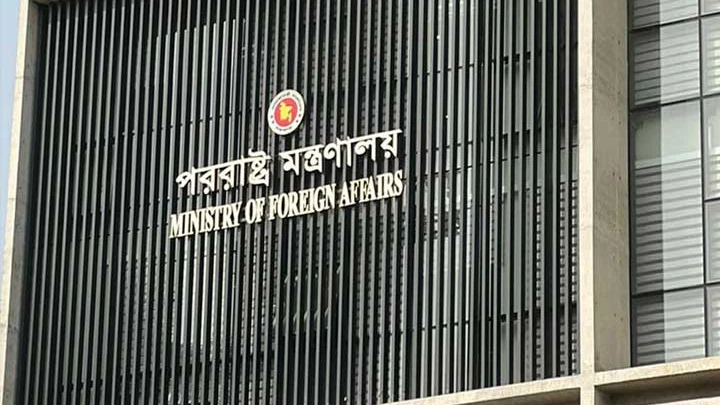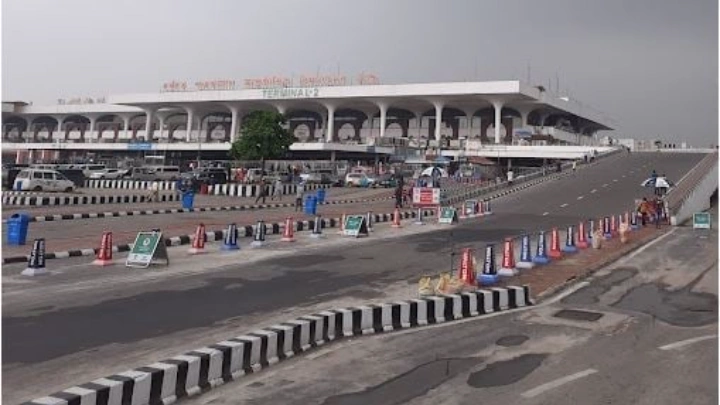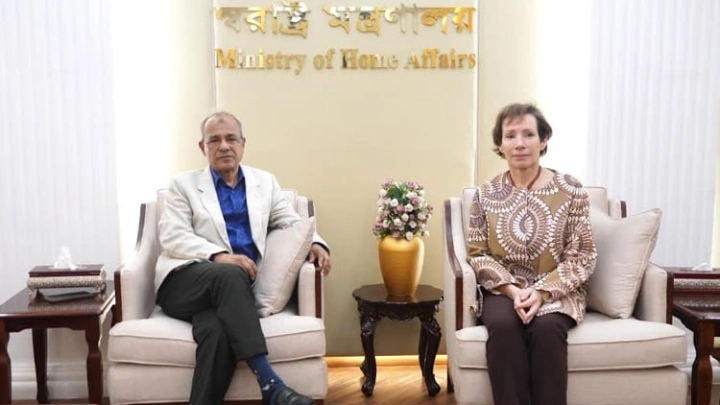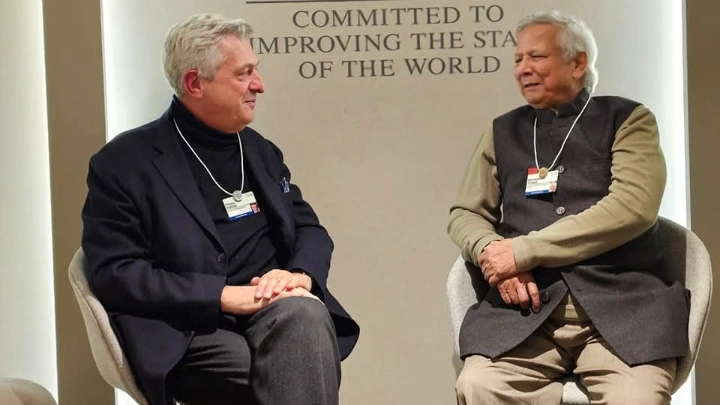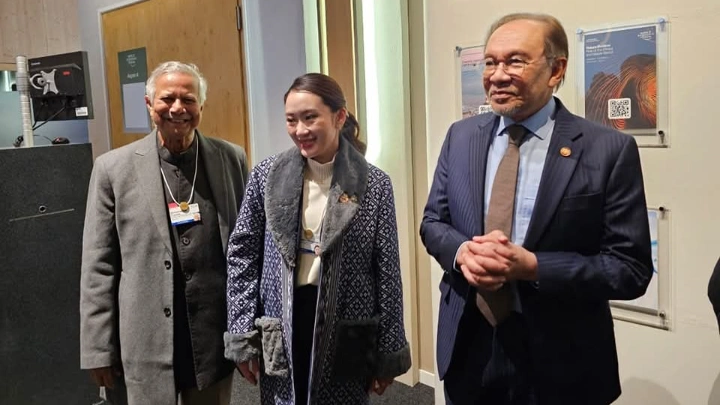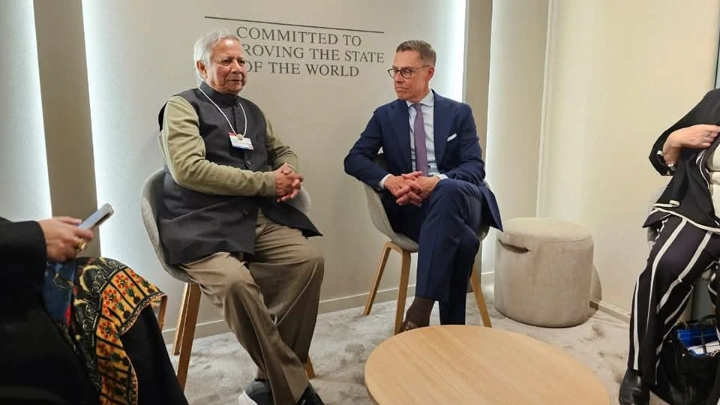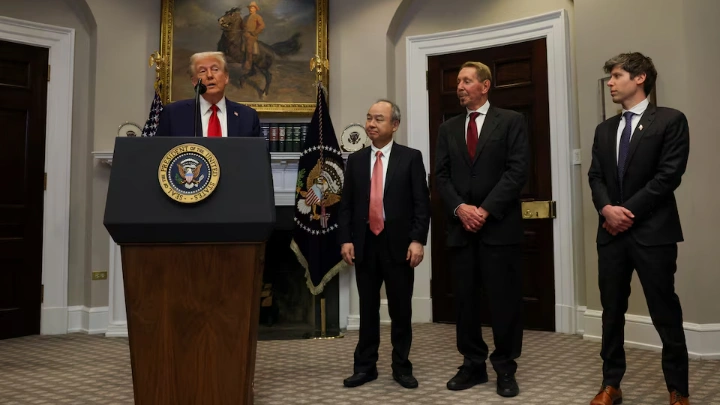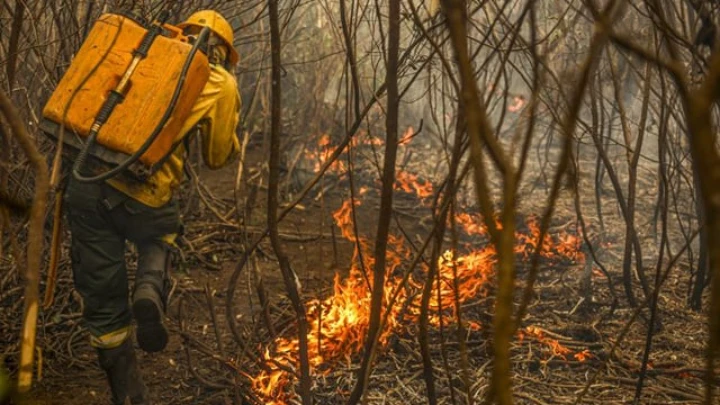Why is the 'Bengali terrorists’ tag being used for Rohingyas?
DhakaTribune || Shining BD
The situation in Myanmar's Rakhine state is unstable once again. Another 200,000 people have been displaced as a result of the renewed violence, according to the international media. The Arakan Army (AA), Myanmar's ethnic armed group, is once again referring to the Rohingya population as "Bengali terrorists" in this context.
The AA now uses this term in all its documents and official statements. Rohingya activists who fled the country and took shelter in camps in Bangladesh say that the AA always tries to give this tag to the Rohingyas with the aim of disowning them. Activists working with the Rohingya population say that if this identity becomes permanent in the documents, it may affect the repatriation process. It is important to recognize Rohingyas by their own identity. It is not right to create new tags for political gain.
On February 2, the AA and Myanmar's border police, the BGP, began conflicting across the border in Naikhongchhari. At that time, the rebels took control of the border posts occupied by the junta forces. The BGP members fled to Bangladesh when the AA intensified their raids on the border posts. Then the AA advanced towards Maungdaw and Buthidaung. In early May, the AA claimed control of Rakhine's town of Buthidaung.
During the entire period, the AA was also waging an information war. They have destroyed houses and fields across thousands of acres of land, and they have issued official speeches to blame others for their actions. They warned the residents of Rakhine to leave the city before the clashes intensified. They even assisted in the evacuation process, citing the "Bengali terrorists" as the root cause of the entire situation.
Myanmar's military claims that terrorists from within the Rohingya community (which they call Bengali terrorists) were responsible for the arson that took place in villages. They also bear the blame for the exodus of thousands of Rohingyas from their homeland. The military asserts that they instructed the terrorists to act violently.
Authorities also blamed these "Bengali terrorists" for the unrest and exodus of Rohingays into Bangladesh in 2017. In a recent CNN report, AA spokesperson Khaing Thu Kha stated in a telegram that they are evacuating Muslim communities in Buthidaung and providing them with food, shelter, and medical care. Later, the AA issued a statement, claiming that they never target civilian objects and blaming the Myanmar military for targeting civilians. They blamed Rohingya militant groups allied with the military—whom they call “Bengali terrorists”—for carrying out a massacre in Buthidang.
An official of a non-governmental organization working in a camp in Cox's Bazar said that the AA started using this tag in 2017. However, the AA has not utilized this tag for an extended period since then. However, while working in the camp, he recently came across Rohingya leaders who were expressing their fear that this tag might block their way of repatriation.
Activist Anik (pseudonym), who works on Rohingya rights in the camp, said: "We have noticed this issue a couple of times in the last month. The AA uses this tag in international media when making important comments. It is understandable that there is an attempt to establish the tag.”
Asked about it, researcher and teacher of anthropology at Chittagong University, Rahman Nasir Uddin, said that it is Myanmar's state narrative because they consider Rohingyas illegal Bengali migrants. Therefore, they call the Rohingyas “Bengali terrorists”.
“If we want to understand this a little further, then we have to say that the conflict between the Rohingya Solidarity Organization (RSO) and the AA has been going on for a long time. The Arakan Rohingya Salvation Army (Arsa) has been largely inactive since 2017. At the same time, the RSO attempted to strengthen its position. The AA launched an armed movement against the Myanmar military junta when it seized power in 2021. The junta government then openly attributed Arsa's activities to the AA, labeling them anti-state subjects.
Since then, the junta government has referred to the Rohingyas supporting Arsa as 'Bengali terrorists'. On the other hand, the AA refers to the Rohingyas associated with RSO as 'Bengali terrorists'.
On November 13, last year, the AA launched a large-scale offensive against regime targets across northern Rakhine State and Paletwa Township in neighbouring Chin State.
The AA soon gained significant ground, seizing over 170 junta bases and outposts, as well as controlling several towns in Rakhine State and one in Chin State.
In February of this year, the AA captured two key military units in western Myanmar’s Rakhine state. The AA says it is fighting for more autonomy for the ethnic Rakhine population in the state, which is also home to around 700,000 members of the persecuted Rohingya Muslim minority.
Shining BD

